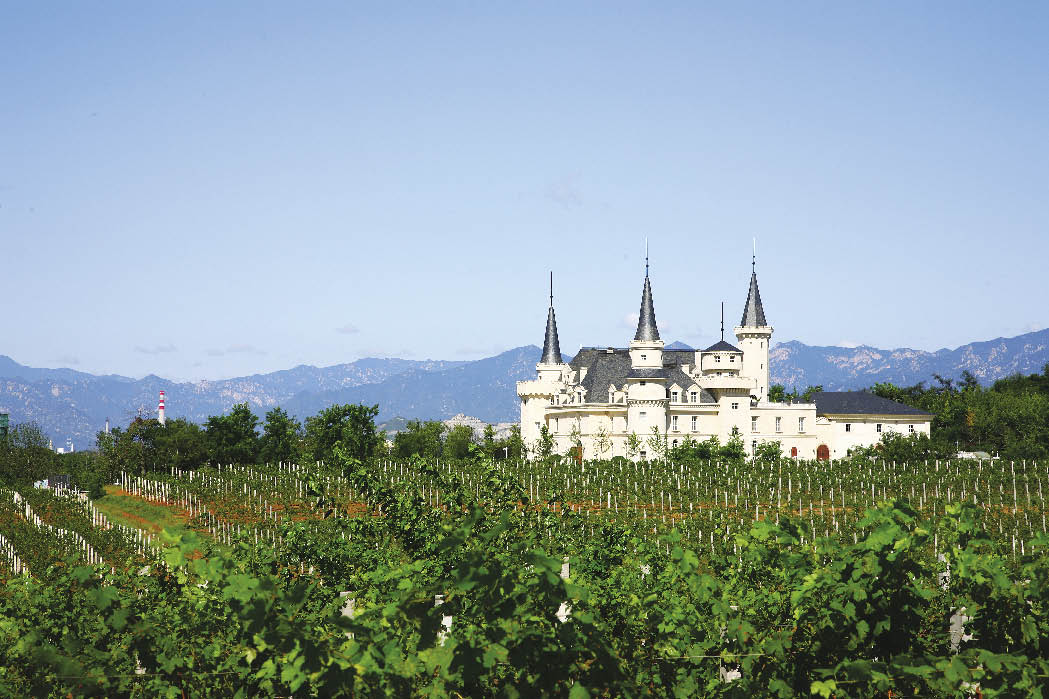| A Matter of Taste:
Cultivating the Vineyards of the Future
By staff reporters CELINE PERRAUD & SETH GROSSMAN
Nestled in the hills that surround Beijing is an enclave of old-world charm, where a European style castle cuts a strange and lonely figure in the landscape. Called the Château Changyu AFIP Beijing, it was completed in June 2007 as an international joint venture between Yantai Changyu Winery Co., Ltd, and investment capital from partners in the United States, Italy, Portugal and other countries. But is it all wine shanzhai, that Chinese notion of an almost undetectable copy, or can Chinese wine be as wine is meant to be – about "place" – the unique greetings of a region awakening your pallet?
 |
| Chateau Changyu AFIP Beijing. |
As with many other Chinese enterprises, Changyu has gained recognition for sheer scale. Due to the enormous size of the project, which covers about 46 hectares of land, the capital's Château Changyu is regarded by the OIV as a global model for the modern château vineyard. The International Organization of Vine and Wine (OIV) has shown great interest and support for the project, and Robert Tinlot, honorary president of the OIV, was invited to be the honorary president of the château.
All the evidence is that good quality is also a badge Changyu wine deserves, the result of paying its dues in the industry.
Veteran of the Vine
The Changyu Winery itself has a history, and a history long and colorful enough to have a role in the tragedy and triumphs of the world's vine families.
It dates back more than a century to the Qing Dynasty (1644-1911), when in 1892, Chang Bishi (1841-1916), a wealthy Chinese businessman, imported more than 100 varieties of vines into China to start his winery. He chose the lush hilly coast of Yantai with just the right soil to cultivate these grapes. It was a first for China, which had no previous winemaking tradition. He decided to name his company Changyu, a reference to himself Chang, combined with the Chinese character yu meaning "prosperity." His nephew and co-founder of the winery, Chang Chengqing, was its first general manager. The huge Changyu Wine Cave in Yantai, Shandong Province, the largest in Asia at time, was built under Chengqing's watchful eye. People have been storing wines underground for 1,000 years, as a way to age and preserve the flavor. Coolness is important to the process of creating a fine wine, whether in natural or man-made caves, or in above-ground, climate-controlled warehouses.
|
